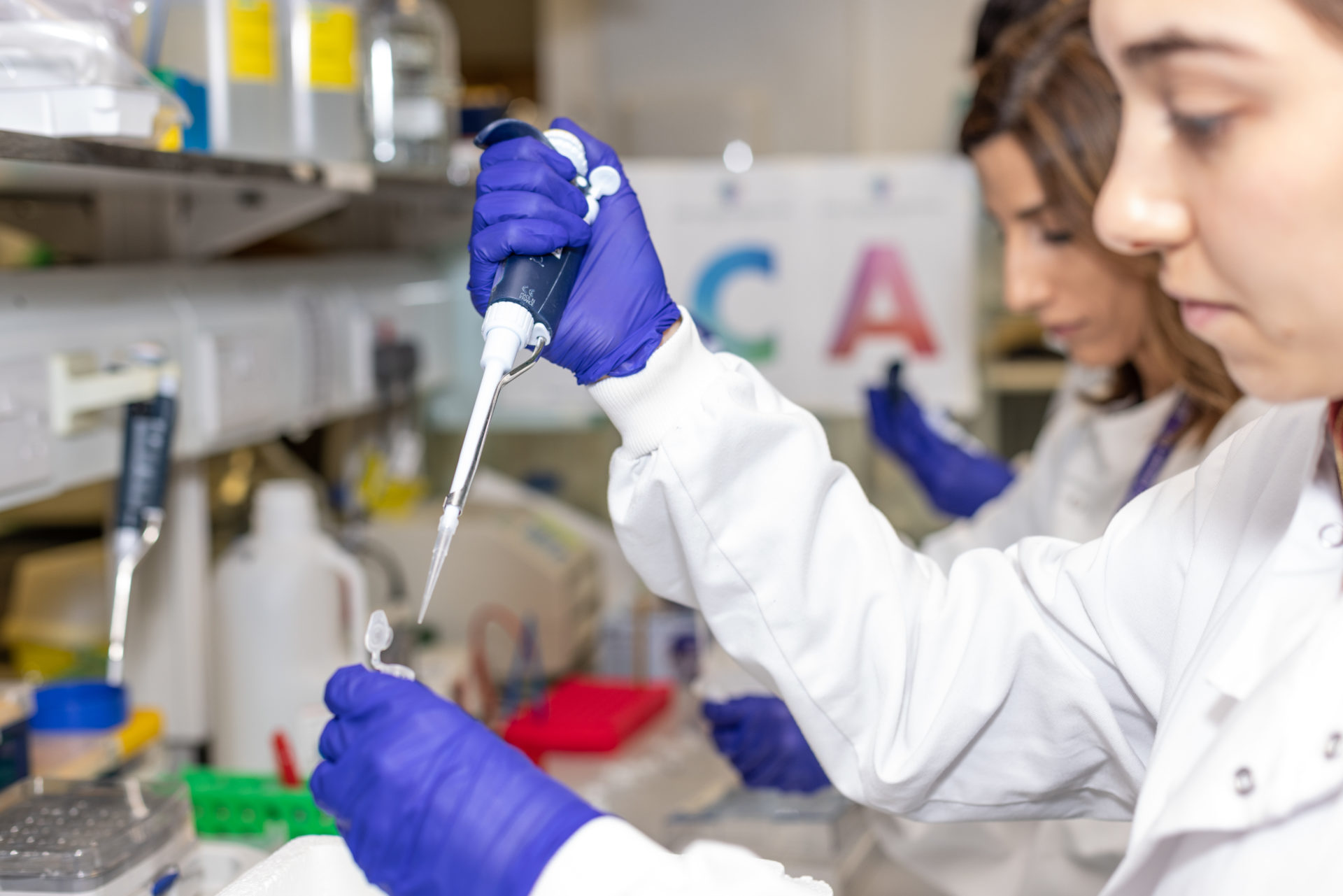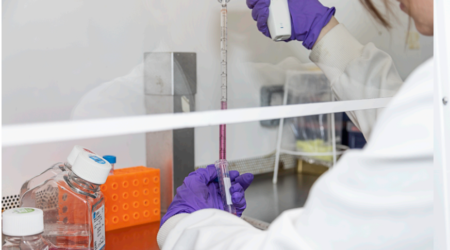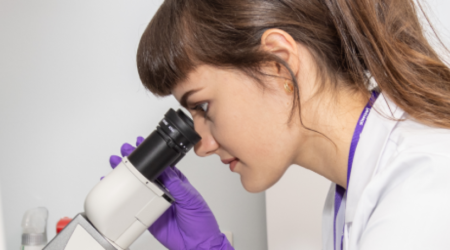

Four things we’ve learnt about early detection
Our researchers have laid vital groundwork for the development of new tests for pancreatic cancer. Here we take a look at what they've achieved so far.
Early detection saves lives. However, the symptoms of pancreatic cancer are vague, making it incredibly difficult for GPs to distinguish it from other less serious conditions. As a result, 80% of people with pancreatic cancer are diagnosed too late. Too late for treatment, too late to survive.
In 2018 we set up the Early Diagnosis Research Alliance which brought together a world leading team of experts, led by Professor Steve Pereira at University College London, with the aim of making significant progress towards the development of new tools for the early detection of pancreatic cancer.
Improving early detection of pancreatic cancer would mean that more people are diagnosed earlier, giving them the chance to have life-saving treatment.
Five years on, what have we learnt?
1. Clues in the blood can help us detect pancreatic cancer markers
Our researchers have identified new biological markers, or biomarkers, of pancreatic cancer in the blood of patients. By combining measurements from a number of biomarkers, rather than testing for one at a time, they have created the very first blood test for pancreatic cancer, which is over 90% accurate. This test is now undergoing further development and evaluation in the USA by a commercial company, Immunovia.
This was an exciting milestone because it showed, for the first time, that it is possible to use biomarkers to develop blood tests for the detection of pancreatic cancer. We are continuing to fund research to build on and refine these findings, to ensure that tests are as accurate and as sensitive as possible.
2. Thirst and dark urine are new red flag symptoms
Our researchers analysed the symptoms of over 24,000 people diagnosed with pancreatic cancer, and identified two new red flag symptoms of disease – thirst and dark urine – which had not previously been recognised.
These new findings will be used to refine the clinical decision-making tools that GPs use to help them identify patients who need urgent referral. By improving the accuracy of these tools, alongside developing new tests, we have the potential to take great strides forward in the early detection of pancreatic cancer.
3. The best place for a test is in the hands of GPs
This might seem obvious, but previously there had not been any research carried out to test this assumption. Having clear evidence which shows the best place to use new tests for pancreatic cancer is important to make sure that researchers develop the new tests knowing where they must be most effective. This will also help to ensure that new tests become available to doctors as quickly as possible once they are ready.
Researchers spoke to a wide range of stakeholders and concluded that in the NHS, the best place to use new tools for the early detection of pancreatic cancer would be early in a patient’s journey, ideally in the GP surgery, to speed up referral and allow people to be diagnosed quicker.
4. Sample collections are essential for progress
Researchers have developed the world’s first collection of biological samples (known as a “biobank”) from people who presented to their GP with vague symptoms which could be pancreatic cancer. It now contains samples from over 1,800 individuals, including those who went on to be diagnosed with pancreatic cancer as well as those with other conditions.
This biobank is a key resource for the development of tests, because confirming new biomarkers only in samples from people with established pancreatic cancer is not very useful as it only tells us what we already know. Testing them on a group of samples from people with similar vague symptoms is a better reflection of the real-world situation in the GP surgery, and makes sure that tests are able to distinguish between people who are very likely to have pancreatic cancer, and those who have other less serious conditions.
This unique sample collection is becoming a valuable tool for the pancreatic cancer research community. To date, it has supported over 15 new projects focused on improving the early detection and diagnosis of pancreatic cancer – and counting.
"A few years ago, we knew a little bit about early detection of pancreatic cancer, but finally people are realising how important it is. The future is really exciting."
What happens next?
This programme of work has been extremely successful and has laid the vital groundwork for advances in the early detection of pancreatic cancer. Progress made through this research is supporting the development of not just one, but several new tests for this disease – a situation we could only have dreamed of five years ago.
What’s more, the biobank will be expanding to also collect tissue samples as well as blood and urine, which will help us to learn even more about pancreatic cancer.
Our researchers are pushing the boundaries of what’s possible and are working on more ground-breaking discoveries that we can’t wait to share with you soon.
With your support, we can keep the momentum going and put new tools in the hands of GPs to improve the early detection of pancreatic cancer and save thousands of lives every year.




